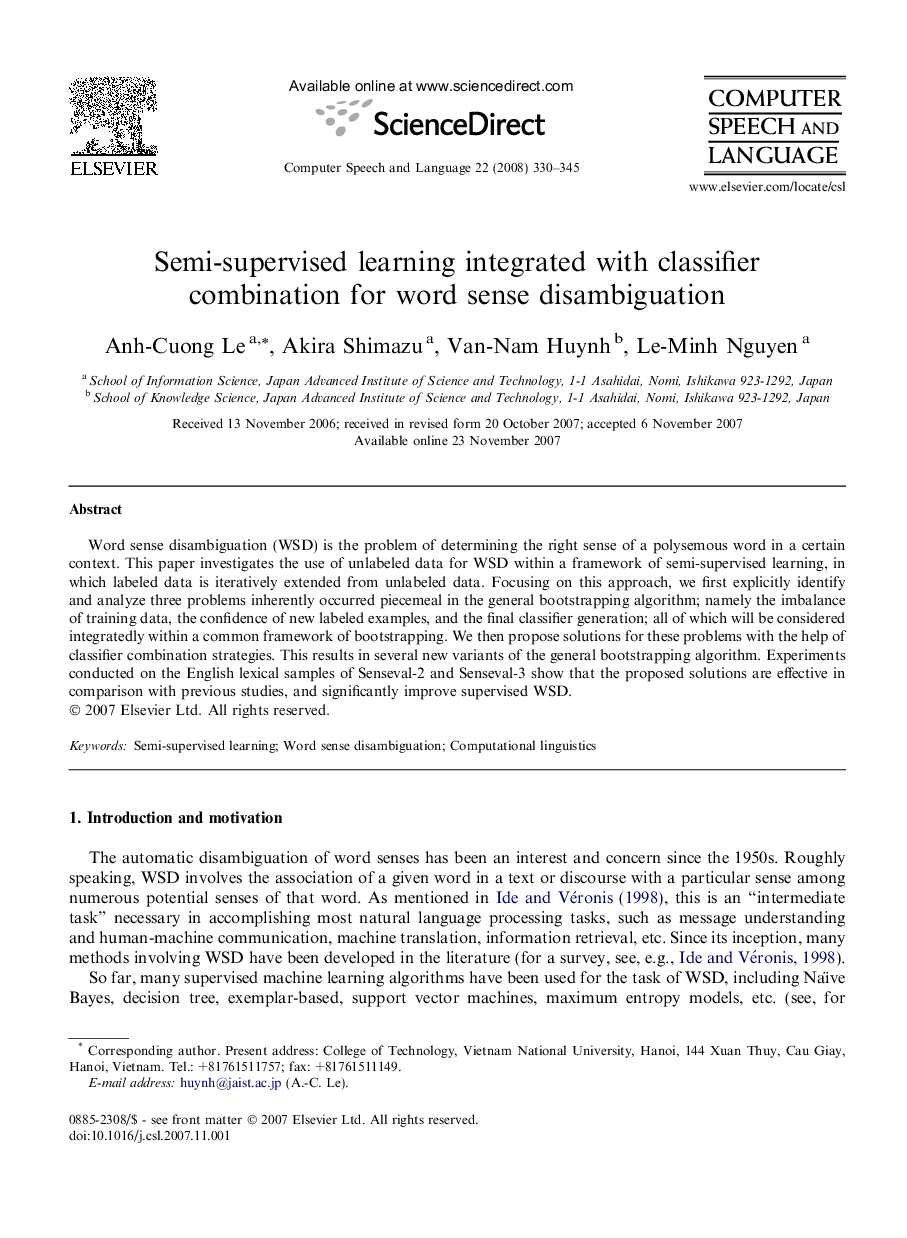| Article ID | Journal | Published Year | Pages | File Type |
|---|---|---|---|---|
| 557961 | Computer Speech & Language | 2008 | 16 Pages |
Word sense disambiguation (WSD) is the problem of determining the right sense of a polysemous word in a certain context. This paper investigates the use of unlabeled data for WSD within a framework of semi-supervised learning, in which labeled data is iteratively extended from unlabeled data. Focusing on this approach, we first explicitly identify and analyze three problems inherently occurred piecemeal in the general bootstrapping algorithm; namely the imbalance of training data, the confidence of new labeled examples, and the final classifier generation; all of which will be considered integratedly within a common framework of bootstrapping. We then propose solutions for these problems with the help of classifier combination strategies. This results in several new variants of the general bootstrapping algorithm. Experiments conducted on the English lexical samples of Senseval-2 and Senseval-3 show that the proposed solutions are effective in comparison with previous studies, and significantly improve supervised WSD.
